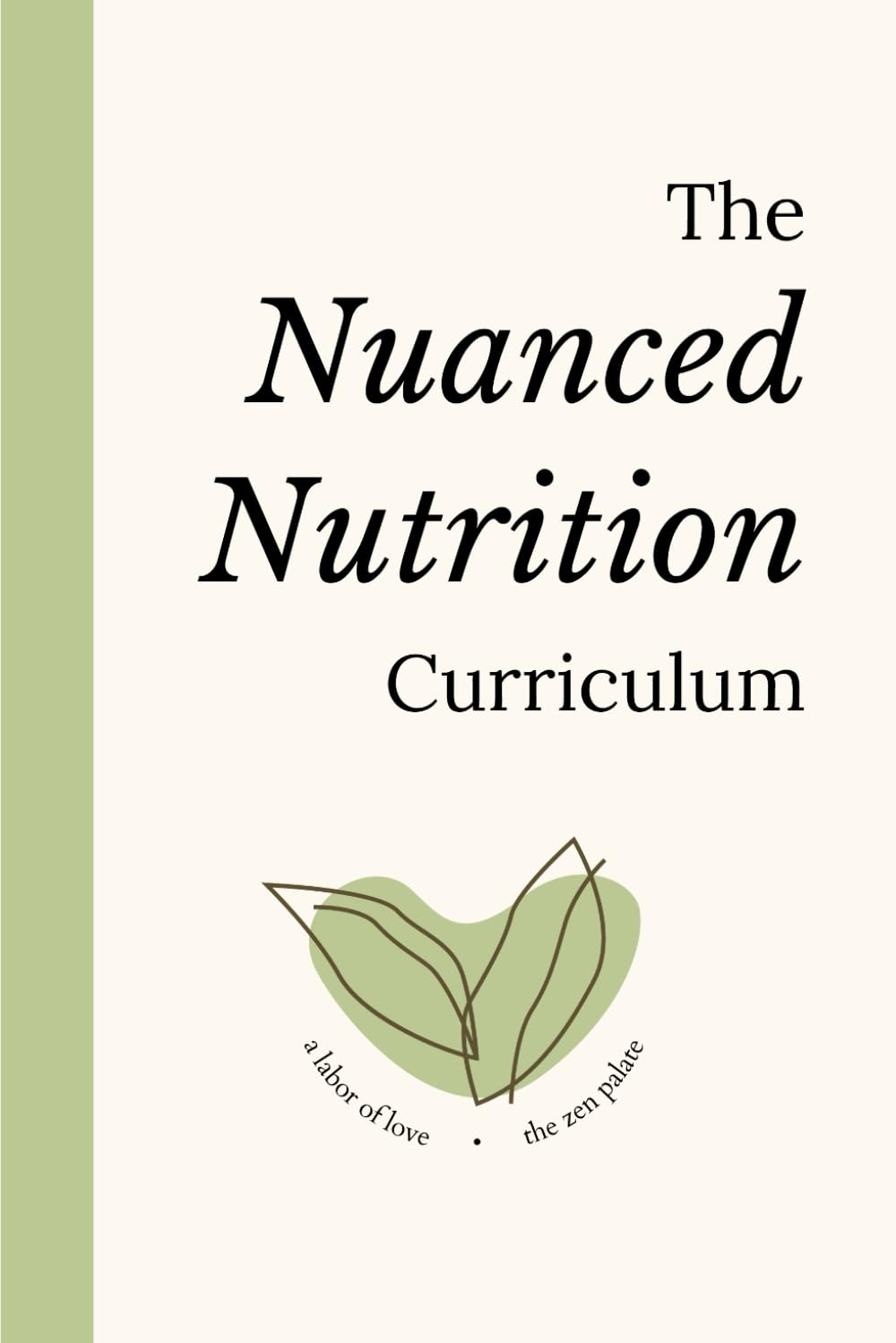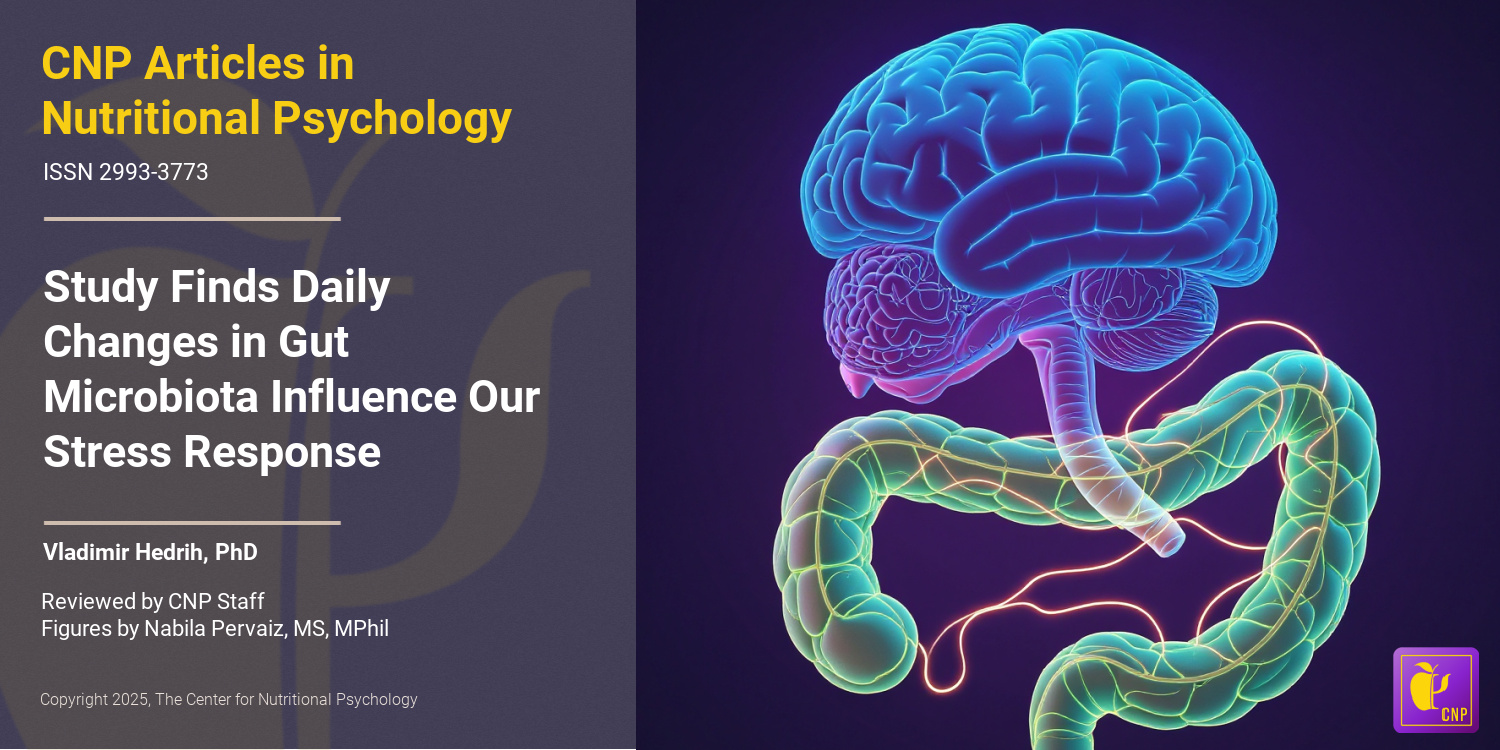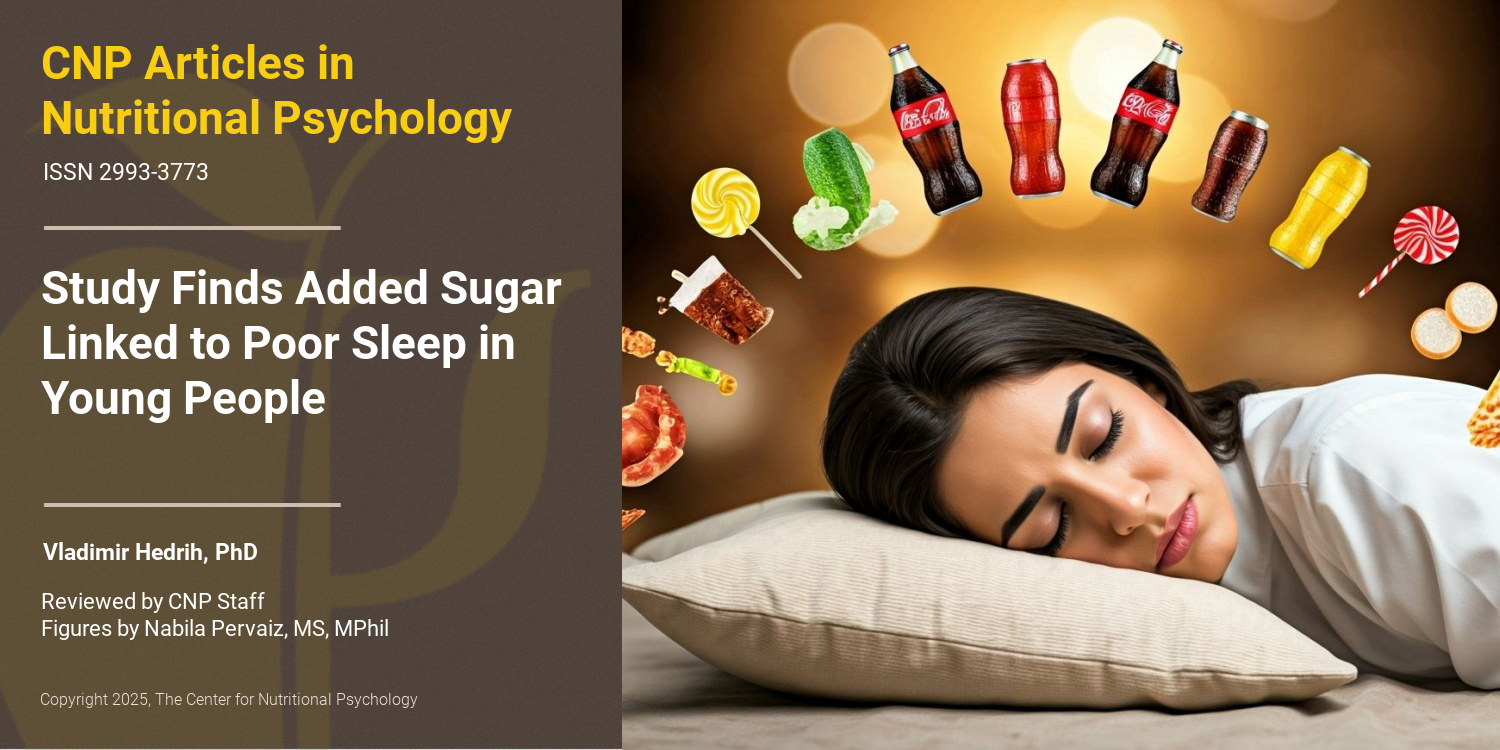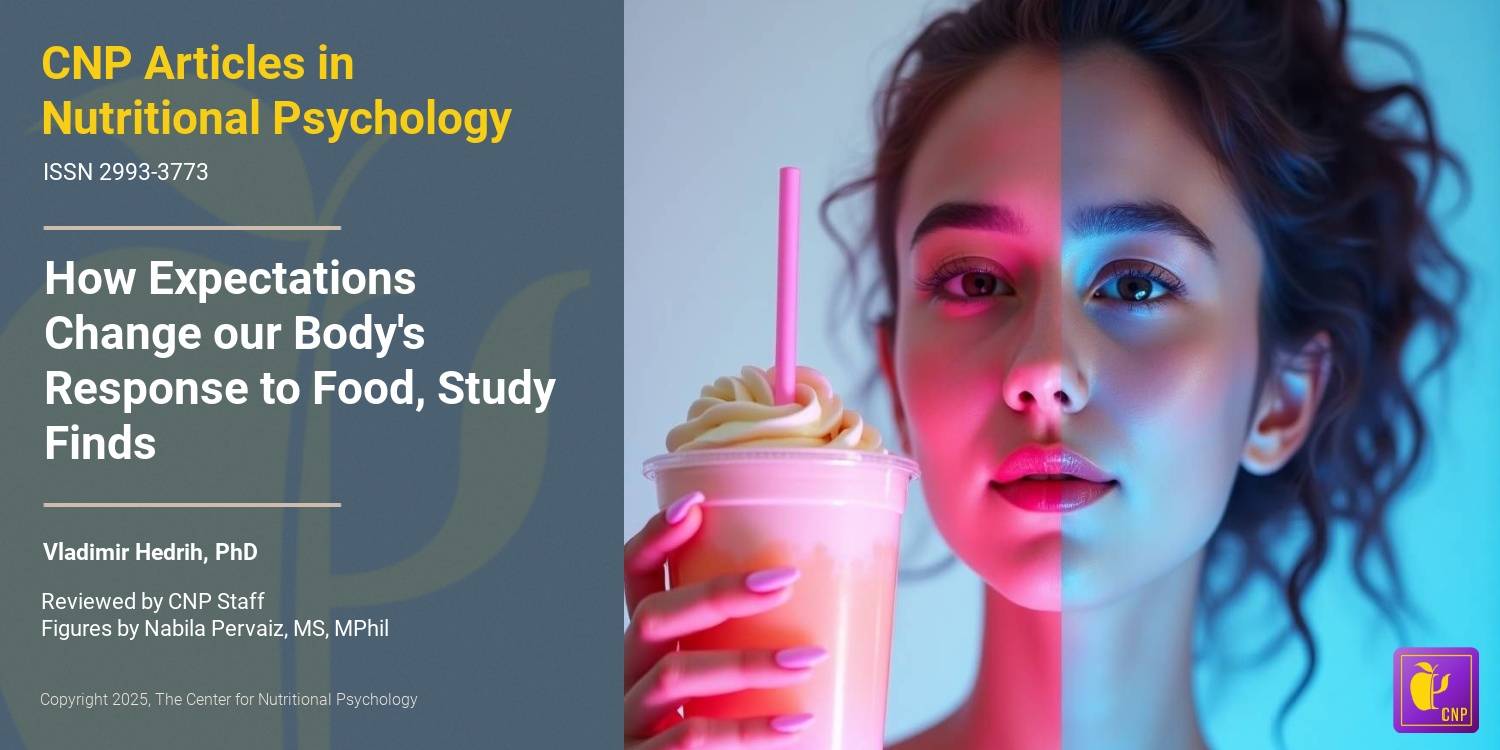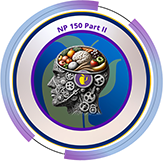The Nuanced Nutrition Curriculum is an accessible, educational resource written by high school students, dietitians, and psychologists to cultivate a culture of conscious, compassionate, and curious eating. The curriculum utilizes the language practiced by anti-diet health professionals to encourage students to do the same with the hope of reclaiming the power given to weight discriminatory jargon and morality terms. The versatility of the curriculum allows it to be a textbook or a guide, in classrooms and clubs, or as a leisure read. By educating students on the facts of nutrition and food sciences, the curriculum fosters connection and conversation about social dialogue and food beliefs which can lead to independent, informed, and empowered food choices.
Archives: Books
Nourished: Connection, Food, and Caring for Our Kids (And Everyone Else We Love)
What does it mean to be nourished?
Nothing could be more basic than food. However, food is only one part of the concept of nourishment, but it has consumed our focus and eclipsed something far more critical for thriving—connection. We have lost sight of the fact that feeding our families is about human relationship and emotional well-being.
In Nourished, developmental and relational clinical counsellor Dr. Deborah MacNamara shows us how feeding is part of the caretaking relationship and cannot be separated from it. Informed by attachment science, developmental psychology, neuroscience, and research on human emotion, Nourished reframes our approach to providing for our kids and helps us hit the reset button on our relationship with food. After reading this seminal work, it will be impossible to ever view food as just plain food again.
What the Fork Are You Eating?: An Action Plan for Your Pantry and Plate
It’s labeled “natural,” “grass-fed,” or “free-roaming;” yet it might be anything but. It’s time to find out what you’re actually eating…
When your groceries are labeled “low-fat,” “sugar-free,” and even “natural” and “antibiotic-free,” it’s easy to assume that you’re making healthy choices. Yet even some of those seemingly wholesome offerings contain chemical preservatives, pesticides, and artificial flavors and coloring that negatively affect your health. In What the Fork Are You Eating?, a practical guide written by certified chef and nutritionist Stefanie Sacks, MS, CNS, CDN, we learn exactly what the most offensive ingredients in our food are and how we can remove (or at least minimize) them in our diets. Sacks gives us an aisle-by-aisle rundown of how to shop for healthier items and create simple, nutritious, and delicious meals, including fifty original recipes.
Relational Nutrition: The Psychology of Attachment & Food Behavior
Why do people seek wellness but eat poorly or behave in ways that cause the very health problems they are trying to avoid? Why do people use comfort foods to cope with loneliness? What is the relationship between food and drug addiction? How is food used as a transitional object? How do families contribute to the formation of eating disorders? How do broken attachments with caregivers contribute to eating problems? Why did the “one child per nurse” rule reduce the death rate in hospitals? Should babies be put to sleep with bottles and pacifiers? This book answers these questions and addresses underlying reasons for food behaviors that compromise health and wellness. The author distills and translates important concepts into an easy to read and concise manner. Anyone with interest in nutrition and relationships (or attachment theory) can learn and apply the concepts. Practical applications and tips for caregivers, couples, families, and the public are discussed.
EAT!: A Guide to Radiant Recovery Using Food and Amino Acids to Repair the Addicted Brain and Reduce Cravings
Fuel Your Brain, Transform Your Recovery
Cravings, mood swings, and relapse don’t happen in isolation—they’re deeply connected to what’s happening in your brain. EAT! is your step-by-step guide to using food and supplements to repair the addicted brain, reduce cravings, and support lasting recovery.
For too long, recovery programs have overlooked one crucial factor: proper brain nutrition. Without the right fuel, the brain struggles to stabilize mood, manage stress, and resist triggers. EAT! introduces the Feeding Recovery System, a structured, evidence-based approach to restoring balance and making recovery sustainable.
A Guide to the Psychology of Eating
Why are spicy cuisines characteristic of hot climates? Does our stomach or our brain tell us when it is time to eat? And how do we decide if bugs are food? Employing a learner-centered approach, this introduction to the psychological mechanisms of consumption engages readers with questions and cross-cultural examples to promote critical analysis and evidence-based comprehension.
The discipline of psychology provides an important perspective to the study of eating, given the remarkable complexity of our food environments (including society and culture), eating habits, and relationships with food. As everything psychological is simultaneously biological, the role of evolutionary pressures and biopsychological forces are bases to explore complex processes within the book, such as sensation and perception, learning and cognition, and human development. The authors illuminate contemporary eating topics, including the scope and consequences of overnutrition, the aetiology of eating disorders, societal focus on dieting and body image, controversies in food policy, and culture-inspired cuisine. Supplemental resources and exercises are provided in a pedagogically-focused companion website.
Psychology of Eating From Biology to Culture to Policy
The Psychology of Eating is the essential multidisciplinary introduction to the psychology of eating, looking at the biological, genetic, developmental, and social determinants of how humans find and assimilate food.
Thoroughly revised and updated, this new, third edition brings multifaceted expertise to the topic of normal and dysfunctional food intake, juxtaposing ‘normal’ eating, eating in environments of food scarcity, and the phenomenon of ‘abnormal’ eating prevalent in many modern-day developed societies. The book includes some discussion of eating disorders but takes a much broader approach to the psychology of eating. Key updates in this edition include:
A new discussion of food allergies.
A fully updated chapter on eating disorders, which includes discussion of binge-eating.
Greater focus on junk food addition and updated information on epigenetics and the microbiome
Nutritional Psychology 1st Edition
Nutritional Psychology: Understanding the Relationship Between Food and Mental Health provides a broad look at the intersection between food and mental health and offers a comprehensive approach to effectively prioritize nutrition as a powerful component to maintaining overall wellbeing. Each of the 16 chapters deeply informs about a broad range of nutritional factors including those that promote stable blood sugar levels, optimize brain functioning, and contribute to the microbiome and hormone levels so important to the brain-gut connection. There are useful insights into the dynamics of food selection, eating disorders, obesity, body image, and nutrition quality that can stabilize or destabilize mental and emotional disorders. Additionally, environmental influences that shape eating behaviors are fully explored.
Food for Thought: Changing How We Feel By Changing How We Eat
To truly give “thought for food”, it helps to understand what food means and how it affects the mind and body.
In this book, we will weave together the threads of stress, inflammation, gut health, and food to present an integrated in-depth picture of how choices that we make about food, and other aspects of lifestyle, affect our minds and bodies. The overall objective is to provide readers with enough evidence-based information to enable them to make and carry out informed choices about what they eat.
Foods for Thought: Understanding the Impact of Diet and Lifestyle on Mental Health
Foods for Thought helps you understand the established links between diet, lifestyle, and some of the most troubling mental illnesses. Digestion problems? Looking to lose weight? Are you tired of the usual food choices leaving you drained and finally feel ready for healthful changes? Understanding nutrition — and the role food plays in physical and mental health — can be incredibly confusing. But it doesn’t have to be that way! What if you could change your diet, improve other areas of your wellness, and then find striking improvements in your digestive health and mental well-being? Jason Pawloski, MS, RDN, cuts through the confusing, ever-shifting and often conflicting, dietary recommendations from the news and social media. After 15 years of helping thousands of people as a personal trainer and registered dietitian, Jason takes you on a journey to lifestyle changes and helps you eat healthy for your brain and mental well-being.
